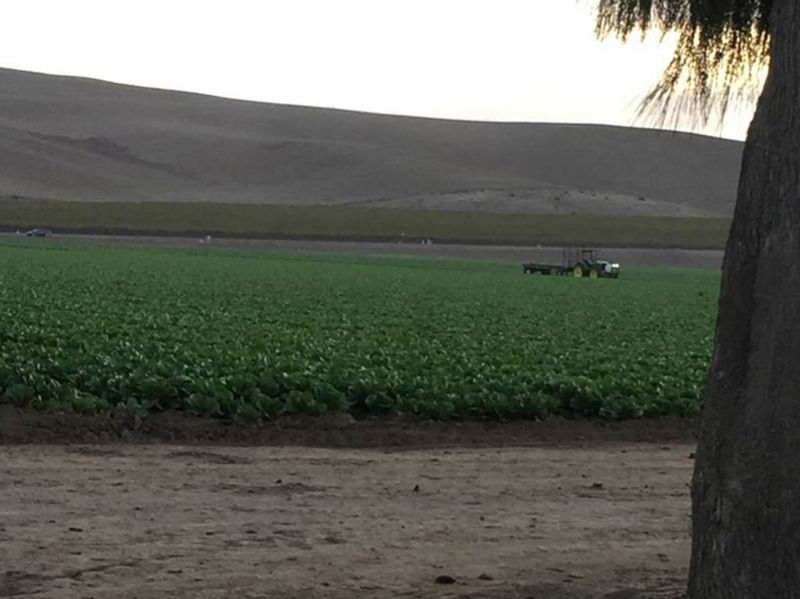"I don’t want to move my kids," she says. "I don’t want to move them because they are used to their school here, and all of my family is here."
Because Gomez is a citizen, she has a fallback option. Like seasonal workers in fishing or construction, she can collect unemployment during the fallow time.
It’s a smaller check, so it requires some belt-tightening, but it offers other perks.
"It’s good," she says. "I mean because my kid gets this vacation off school, too. So we just go out to places like the park. Places they can have fun in."
Staying put provides her 6-year-old son and preschool-age daughter with stability. But putting the kids first isn’t an option for the majority of farmworker families in the state. Most are undocumented and a handful are here on visas. They don’t qualify for unemployment and must keep moving, says law professor Maria Ontiveros, who specializes in labor law and immigration at the University of San Francisco.
"It is not uncommon for a child of a migrant family to go to two or three different schools in a school year," says Ontiveros. "And it makes it incredibly difficult for the child to graduate on time or even to graduate with a high school diploma."
Those are the challenges facing farmworker Maricela Herrera's family. They trek up and down the state, from Orange County to Monterey County. Sometimes the jobs last only a month. Once it was just 15 days. The work provides money the family needs, but not stability for Herrera's 9-year-old daughter, Lilibeth.
She’s one of nearly 140,000 young people whom California identifies as migrant youth.
"It’s traumatic for them to meet new classmates, new teachers," says Herrera in Spanish. "They fall behind academically."
Herrera and her husband came to the United States to work in the fields about a decade ago, and they’ve been on the move ever since.
"It’s not that we decide. It has to be done," says Herrera. "My husband’s job finishes here, and he has to continue and move on. His boss tells him, 'You have a job; you need to continue in Yuma.' "
This year Herrera has found an afterschool program that Lilibeth adores. So Herrera and her husband have decided that when he moves on to Yuma later this month, she will stay behind in King City. That way Lilibeth can at least finish the semester before she has to move again and start over in a new school.
That kind of strategy is encouraged by the migrant education program here in Monterey County.
Through the program, Lilibeth gets the afterschool classes she loves and Herrera has found her voice as a mentor to other migrant parents.
In a portable classroom at Lilibeth's elementary school, Herrera and some other moms practice a presentation they’ll give to farmworker parents.
Her message? Small sacrifices -- like staying behind while a spouse moves on so kids can finish up school -- won’t create a perfectly stable life for their children, but they can help buffer youngsters from the upheavals of migration.
